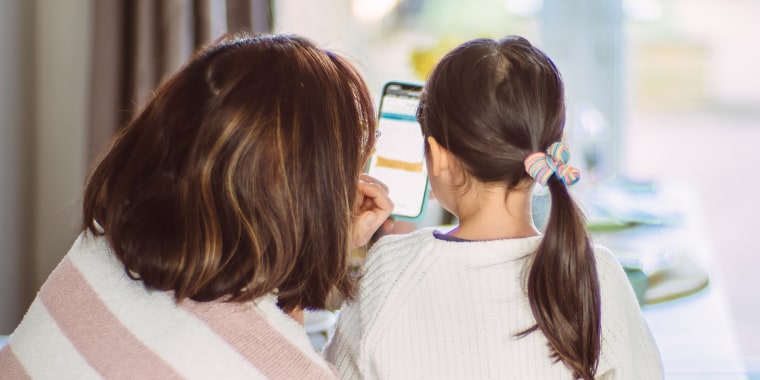In 2015, Victor Temprano created Native-Land.ca, an app that he hoped would help people understand "more about the lands they inhabit," according to its website.
The visual platform and interactive tool allows users to learn more about the Indigenous lands where they live and the Indigenous Nations and communities who stewarded the lands before colonization.
"Since that point, the map has morphed into a nonprofit organization," said Christine McRae, executive director of Native Land Digital, the nonprofit behind the app. "We now have a global map of Indigenous territories, languages and treaties."
The map is not complete; instead, it is a continuous work in process.
"We make changes, alterations or additions to the map based on requests from communities," McRae told TODAY Parents. "So it's really an Indigenous-led organization that supports a digital base where Indigenous people are able to represent themselves."
Using either the mobile app or the desktop website, users can input their address or click on a specific area of the country and find links to educational materials that can help them learn about specific Indigenous Nations and their languages, treaties, culture and history.
"(The map) is supporting Indigenous peoples as they take back the narrative, and have both the ability and the platform to be able to share their stories," McRae added. "In doing so, we're able to know a truer history of the place that we live in."
Research reveals that such information is needed. A 2015 study that evaluated schools' U.S. history curriculum standards found that 87% of the material only included content about Indigenous peoples prior to the year 1900. Another 2018 study conducted by Reclaiming Native Truth, a community-led narrative research project, found that 62% of people say they're "unacquainted with Native Americans," and 72% say "it is necessary to make significant changes to the school curriculum on Native American history and culture."
McRae said the app and website are trying to give young people an engaging way to learn about Indigenous history and spark conversations about Indigenous rights during the holiday season.
"It's a different way that allows people to visualize whose land they're on," she said. "We have a responsibility to learn the history so that we don't continue to perpetuate harm. We're having more and more of those conversations, and I'm very hopeful listening to a lot of youth from around the world who are incredible advocates and who make sure we take care of the land that we're on, and who make sure that this land remains for future generations."
Diana Cournoyer, executive director at the National Indian Education Association and a member of the Oglala Sioux Tribe, noted that conversations about the true history of Indigenous Nations and colonization can be uncomfortable for some. She encourages parents to lean in to that feeling of discomfort when discussing the realities of Native American history.
"I just ask that adults and caregivers get in touch with what that uncomfortable feeling is for them, so that they can, in their own words, try how to express to a child how Indian kids feel today," Cournoyer said. "Then they need to read and do their own research."
Some of that research, Cournoyer added, should include acknowledging Indigenous joy and pride — something Cournoyer said her people have in spades.
"Native people exist in pride today," she said. "We are thriving, we are innovating, we are creative, we are problem solvers, we are economic drivers in a lot of states, we make decisions, and we are highly educated. We exist just like any other race or ethnic group."
And while Thanksgiving can and often does serve as a catalyst for learning more about Indigenous lands, people and their history, Cournoyer said parents should try to have Indigenous-centered conversations with their kids throughout the year.
"I do appreciate and respect the fact that at least in November, folks are thinking about Native communities and the story of Thanksgiving — the real story of Thanksgiving," she said.
Related:





